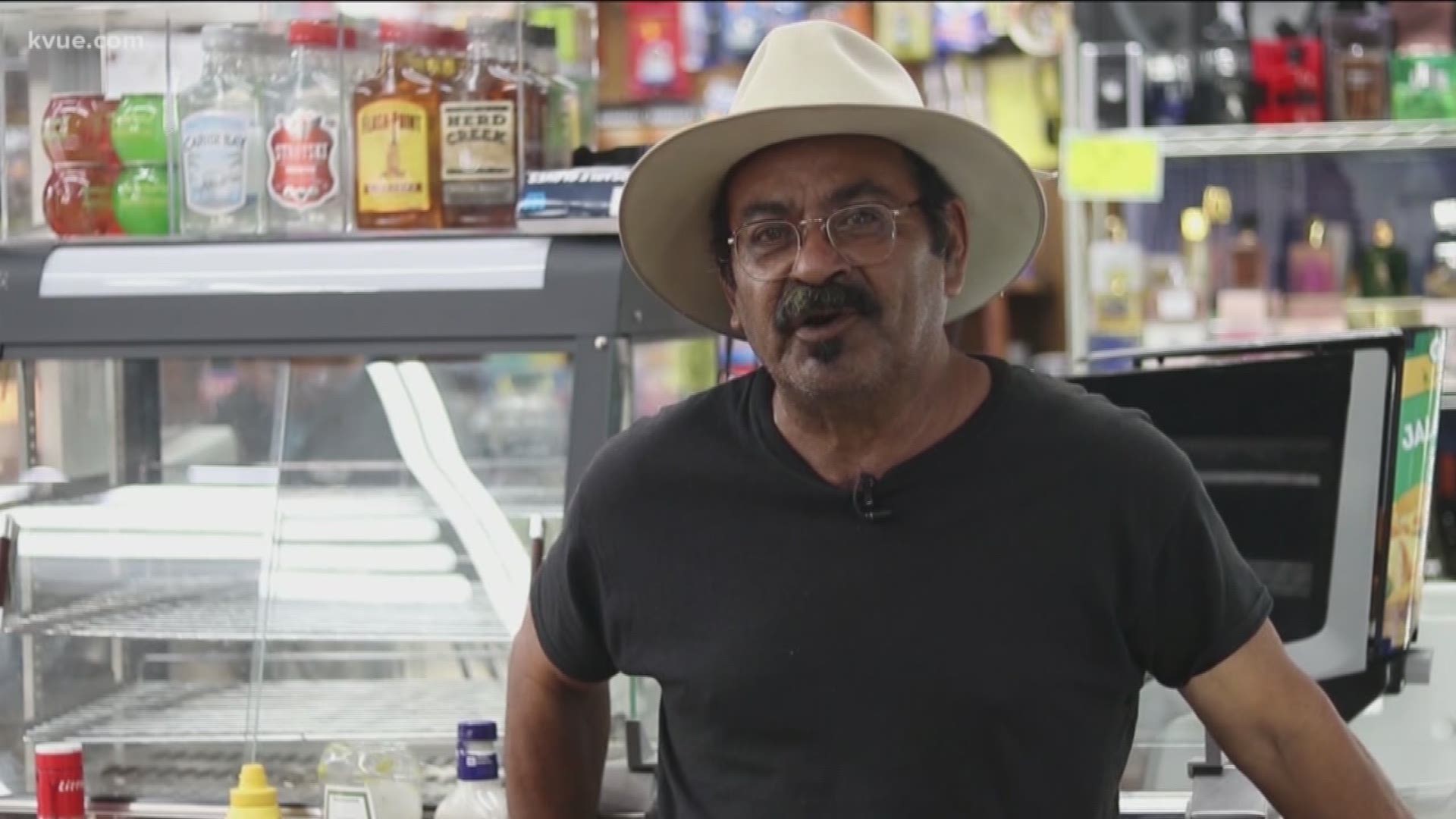SARGENT, Texas — It’s hard to believe places like Vargas Food Store in East Austin still exist.
“This. A tab. Old school,” said Jignesh Patel, owner.
Patel stocks the store with everything from chips and snacks to clothes and groceries.
“If they have a hard time, they come here. Groceries, milk bread, whatever they want. I write it down and, as God as [my] witness, they come back and pay me,” said Patel. “Ninety-eight percent of people come back and pay me ... I never lose money.”
Patel calls this area of Montopolis a “village” where everyone knows each other. However, like the rest of Austin, it’s changing. New construction brings new neighbors.
“The rent, the tax, everything goes up and up,” said Patel.
He remembers when the nearby mobile home park, Cactus Rose, was bought out. The tenants were displaced.
“They go to the countryside because they can get cheap rent to survive,” said Patel.
In 2016, people who lived in the park learned the land they rented would be the site of a new apartment complex. The tenants had to go.
The City of Austin, neighborhoods and developers worked together to create an ordinance. The ordinance created the “Tenant Relocation Assistance Program.”
It was designed to help ease the relocation burden to low-income tenants for all redevelopment projects. The program also laid out rules for treating displaced tenants.
Tenants need their notifications months away from destruction. The notification needed to include information on city services available.
Two funds would help cover relocation expenses like application fees, deposits, moving trucks, etc. One fund would be money given by the city, the other account would be from developers.
Tenants would receive the help based on their income level. If any money in the Developer Trust remained after the last tenant relocated, the developer could request what’s left.
That ordinance passed on Sept. 12, 2016. But that next year, the state intervened.
DOCUMENTS:
House Bill 1449 was signed into law on May 29, 2017. It bans cities from enforcing a fee on new construction to offset tenant cost, stopping Austin’s Tenant Relocation Developer Fund.
The KVUE Defenders reached out to the bill’s authors, Rep. Pat Fallon, R-District 30, and Rep. Chris Paddie, R-District 9, but didn’t hear back.
“Yeah, I think frequently the state goes out of its way to tie our hands,” said Justin Irving, president of the Austin Neighborhood Council.
The Austin Neighborhood Council (ANC) represents 80 City of Austin neighborhood associations.
“[The state] doesn't allow Austin to make the adjustments to our ordinances that we feel are deemed necessary,” said Irving. “That is extremely unfair.”
The KVUE Defenders found nearly 600 people have been displaced by nine new development projects since the ordinance passed. It’s unclear how many have received any kind of assistance from the developer.
But city leaders haven’t given up.
“The city is reviewing Texas Local Government Code §250.008 and its potential impact on the City’s ordinance regarding developer-funded tenant relocation fees,” said a spokesperson for Austin Neighborhood Housing and Community Development.
This year’s budget includes a one-time allocation of $500,000 “for a contract to provide financial relocation assistance allowed under the Tenant Notification and Relocation Assistance Ordinance.” But any future money “would need to be identified to continue these services.”
DOCUMENTS:
“Policymakers are living in a bit of a delusion that folks are just going to shake out of this,” said Irving.
Irving doesn't think developers should be required to pay for all relocation expenses, but he does want to keep people in their community.
“We erase those cultures here and often in the name of, I don't know, progress?” said Irving.
“Progress for whom? It’s no progress when [it's disrupting] the neighborhood,” said Jessie Truillo, a Montopolis resident.
“It’s a progress for their pockets, not for us,” said Truillo.
He said new developments chip away at the community.
“You’re stealing from the poor,” said Truillo. “We lose out. We lose more than we expect.”
The people displaced at the Cactus Rose Mobile Home Park got help. The developer gave folks nine months to find a new place and agreed to pay each mobile homeowner $10,000. Each RV owner and renter got $2,000.
This deal was only made for the Cactus Rose property and the developer assistance was not mandated by the City of Austin.
PEOPLE ARE ALSO READING:

